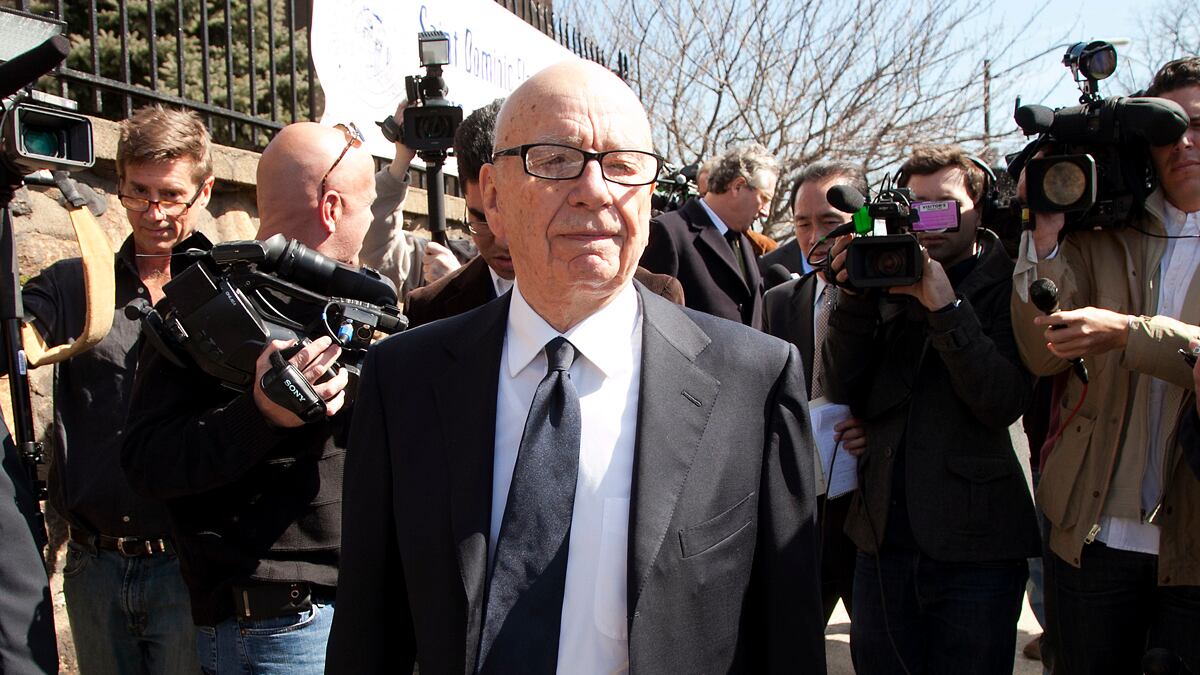Rupert Murdoch’s grip on his global media empire just got significantly looser.

In giving up his director’s seat in several key units of his British and American companies, Murdoch is sending an unmistakable signal of disengagement—and perhaps foreshadowing a sale of his beloved newspapers.
On paper, at least, he is still the unquestioned master and controlling authority of News Corp. and News International. And yes, according to a Saturday report in the Telegraph, the Murdoch conglomerate is playing down the moves as “nothing more than a corporate housecleaning exercise prior to the company split.”
ADVERTISEMENT
Don’t buy it. That split, you may recall, would put the company’s newspapers—The Times of London, The Sunday Times, the Mirror, The Wall Street Journal, and the New York Post—under one roof, divorcing them of the revenue stream provided by such film and television properties as 20th Century Fox and Fox News. The coming separation could starve the less lucrative newspaper properties—and make it easier to unload them, as some company executives would like to do.
The only thing stopping them, in truth, has been the fierce sentimental attachment of the boss, who began his career as an Australian newspaper owner.
But then came the phone-hacking scandal, and the mighty media conglomerate is still reeling from the impact.
The disclosures that News of the World was illegally accessing the voicemail of celebrities, crime victims, and ordinary citizens did more than force Murdoch to shut down the racy London tabloid. It did more than blow up his attempt to complete a takeover of British Sky Broadcasting. It did more than lead to the arrests of a number of his top lieutenants, including Rebekah Brooks, who once ran the paper and rose to oversee the British newspaper division. In the end, it tarnished the Murdoch brand and led to the spectacle of the old man appearing forgetful and uninformed as he was grilled by members of Parliament.
In stepping down from the boards of NI Group, Times Newspaper Holdings, and News Corp. Investments, Murdoch is following a path traced by his son, James, who was badly damaged in the scandal. James Murdoch resigned a series of News International directorships last fall and then resigned as chairman. (The elder Murdoch also quit a number of News Corp.’s American boards, the details of which have not yet been disclosed, according to the Telegraph.)
Rupert Murdoch’s position as head of the mega-corporation may be more fragile than previously believed. On Friday, The Independent reported that two of News Corp.’s non-executive directors—Sir Rod Eddington and Andrew Knight—had spoken with a powerful pension fund backing a reolution for Murdoch to step down as the company’s chairman and chief executive.
Some British investors are said to support the resolution, which will be presented in October at the company’s annual shareholder meeting in Los Angeles. Such a move, while unlikely to succeed, could produce an embarrassing protest vote.
To outside appearances, Murdoch remains as active as ever. He recently met with Mitt Romney, then used Twitter to demand that Romney shake up his staff, but still said he preferred the Republican candidate to President Obama and his socialist policies.
But Rupert Murdoch does not relinquish positions of power on both sides of the Atlantic as some sort of bureaucratic housecleaning. The resignations may be an attempt to appease his critics, protect his base, or lay the groundwork for an exit strategy. The only certainty here is that Murdoch does not do such things randomly.





